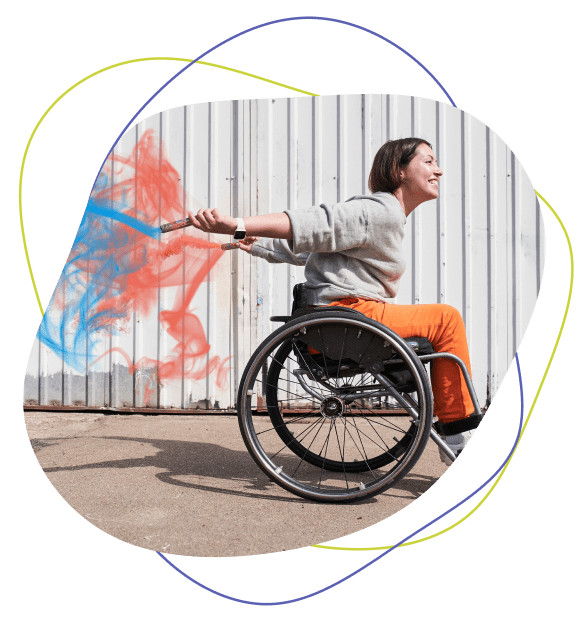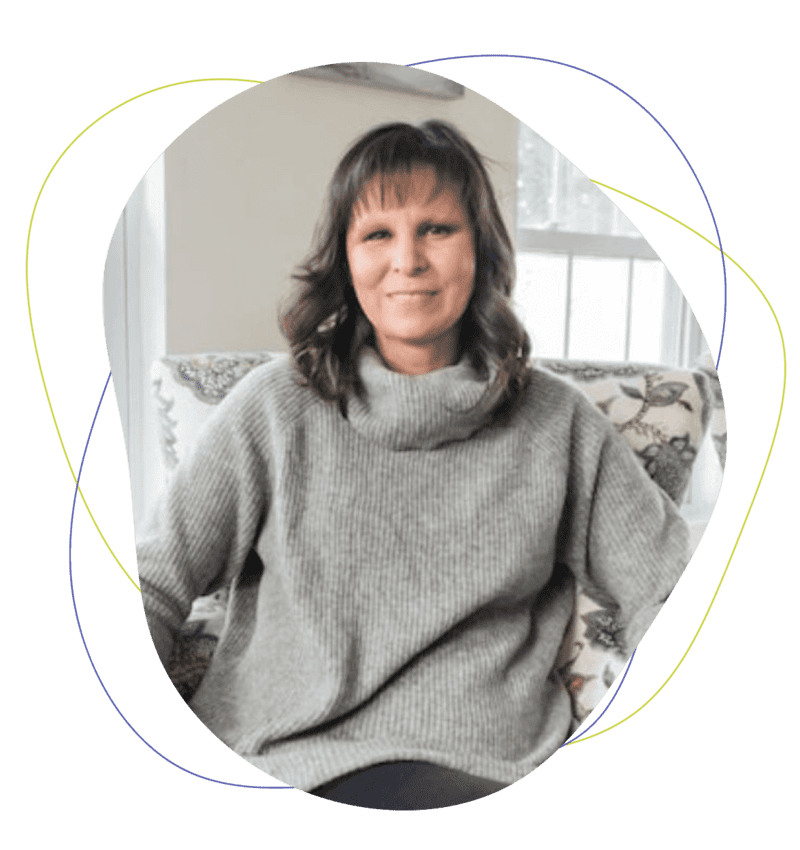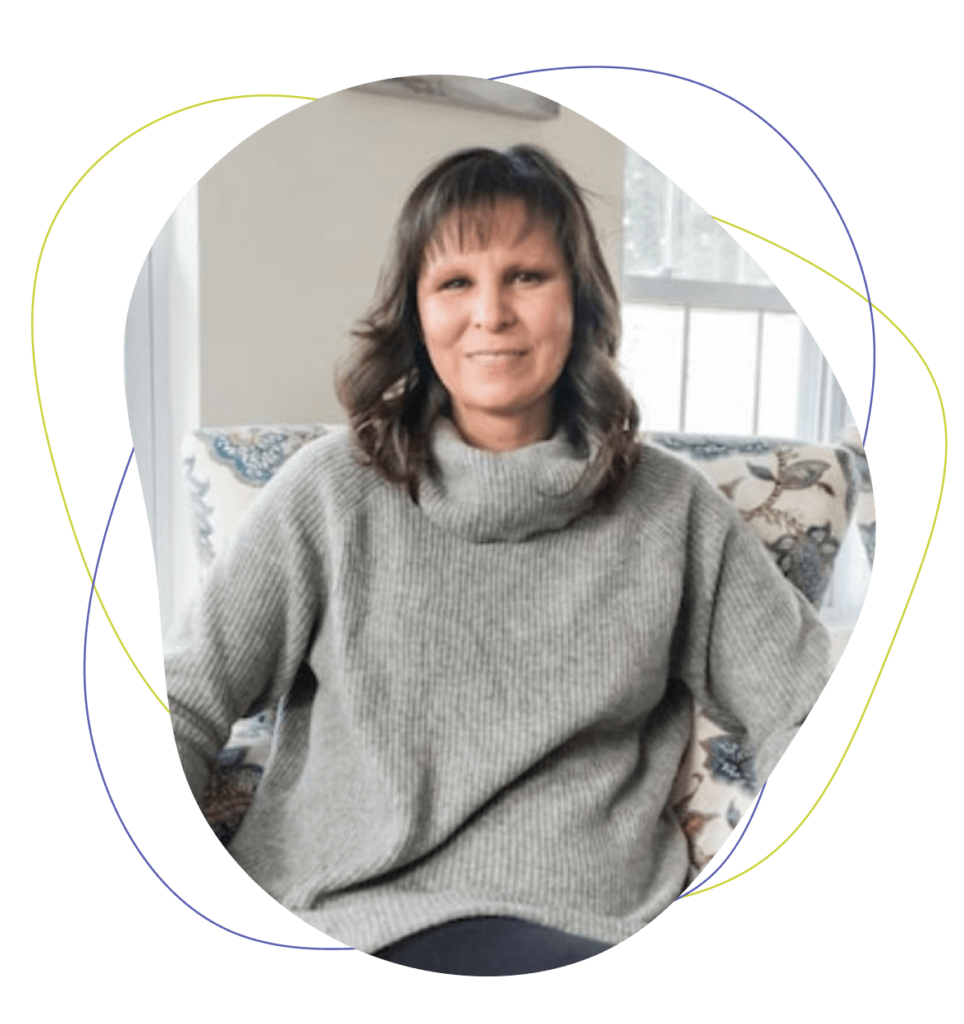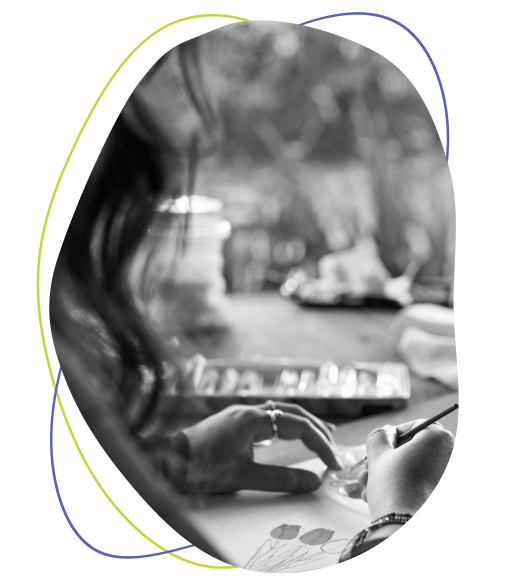
Have physical circumstances compromised your mental health?
Whether your diagnosis is new or you’ve been living with a chronic condition for years, daily symptoms have probably made life uncomfortable. You may be having a hard time adapting to your body’s changes or coping with feelings of loss. And between physical symptoms and invasive treatments, you could lack the energy you need just to get through the day.
Common mental health struggles are likely to co-occur with a new or chronic medical diagnosis. Maybe you’ve noticed symptoms of depression, anxiety, and grief—including prolonged sadness and intense worry—appear alongside your illness. Not to mention, the trauma that your brain and body have endured has probably caused you to feel out of control.
When both your mental and physical health are compromised, it’s easy to fall into patterns of self-doubt and negative self-talk. Consumed by thoughts and fears about your condition, you may have difficulty concentrating or staying present in your relationships. As a result, you may feel lonely or disconnected from others.


The effects of a chronic medical illness can be isolating and often debilitating. Between physical discomfort, sleep disturbances, and cognitive symptoms, you probably feel drained by the day with little to no energy left for your work, hobbies, and relationships. Additionally, there may be some people in your life who doubt or minimize your experience. Especially if you’ve had a long-term, chronic condition, you might feel like those around you no longer recognize or have forgotten your diagnosis. And though you don’t want pity or special attention, you can’t help but feel that you got dealt an unlucky hand.
Chronic medical illness has taken away your sense of normalcy, but it’s possible to find relief from the emotional and mental pain holding you back.
In counseling, you can learn tools for coping with a chronic medical illness.
Living with illness can look a lot of different ways, and chronic conditions impact a wide variety of people. Some experience more debilitating physical effects while others struggle more with the emotional consequences of illness. It’s not uncommon for anxiety and depression to stem from a medical diagnosis or chronic disease—so if you are experiencing setbacks in your mental health, you aren’t alone.
But any transition, especially those related to grief and loss, can be isolating. When we feel cut off and disconnected from others amid life’s most challenging experiences, it sets the stage for prolonged emotional distress and additional health issues. That’s why it’s essential to maintain effective coping skills and healthy relationships in the face of a diagnosis. And studies show that next to personality, strong relationships with family, friends, and peers are the most influential factors on our ability to be resilient.
Even though living with a chronic illness can be lonely, you don’t have to conquer your diagnosis alone. Your connections have the potential to positively impact your physical and mental health in ways that you can’t achieve by yourself. In counseling for chronic disease and medical illness, you can find support, guidance, and healing in a trusted relationship.
When facing a chronic or life-changing medical condition, it’s easy to become frightened by some of your thoughts and feelings. Instead of facing the mental pain, you may avoid or
stifle your emotions. Counseling allows you to meet even the most painful thoughts you have about your chronic illness or medical condition so that you can ease your stress, reduce
pain, cultivate resilience, and make peace with your reality.
We welcome you to the compassionate, judgment-free space of therapy so you can get to the core of your emotions and overcome your fears.


FOUNDER & ART THERAPIST
LCAT, LPAT, ATR-BC
WE BELIEVE EVERYONE HAS A UNIQUE STORY AND SOMETIMES, WORDS JUST AREN'T ENOUGH TO TELL IT.

At Creative Arts Therapy Source, art isn’t just an activity; it’s a language that allows you to express your deepest emotions, fears, dreams, and hopes. Your artwork becomes a window that offers a comprehensive view into your pain, experiences, and the hopes you have for the future.
We want therapy to be a joyful, enlightening, and playful exploration where you are free to express yourself in a way that feels right to you. Talk therapy, with the support of art therapy, can help you uncover a new perspective.
We want to help you tell your story





After you have completed an intake that helps us understand your background and primary goals for counseling, a therapist will collaborate with you to develop concrete techniques to help you successfully cope with your chronic medical illness.








Instances of past trauma, unresolved distress, conflicts with others, or changes in your everyday routine may have caused you to put up protective barriers. But in therapy, you’ll learn how to access and express underlying emotions so that you can foster a greater sense of peace in life. With an individualized, solution-oriented approach, you can enhance your coping and reduce stress.





In addition to traditional talk therapy, we find Art Therapy particularly effective for counseling clients that struggle with a chronic medical illness. Using pencil, markers, paint, or clay, you can create a deeply personal representation of your experiences. This allows you to communicate thoughts, feelings, and fears that may be too difficult to express verbally. Not to mention, Art Therapy can help you increase feelings of peace and relaxation.
Our approach to counseling for chronic medical illness can help you reframe your outlook on life. With new insights, you can adjust negative thought patterns and develop self-care strategies tailored to enhance your physical, mental, and emotional health. By learning to identify and cultivate the things in life that bring you joy, you can strengthen your support systems and regain a sense of control.
For over two decades, we have been counseling clients struggling with chronic illness and medical conditions, including cancer, MS, heart disease, and thyroid issues, among others. We have therapists who have worked in a hospital setting and have firsthand experience of what it’s like to overcome the challenges created by a chronic health condition. We know that with the right help and support, you can stop feeling powerless—and start feeling content.
We realize that one factor that may deter you from going to counseling is the amount of physical, emotional, and mental energy it takes to actively participate in the therapeutic process. We’re not going to lie—it does take work to make positive changes, but it is worth the extra effort.
Counseling can help you enhance your self-care so that every aspect of living with a chronic medical illness can be more manageable. Together, we can reframe your outlook so that you can see therapy as a tool for bolstering your resilience and improving your overall health—not depleting you of your energy.
Understandably, you might find it scary to share your medical history and inner thoughts with someone you don’t know. However, we think that you will find that it helps to have an outside perspective to help you work through pain and conflict.
Oftentimes, when friends or family members try to help, they’re too close to the situation or unable to be partial. But our role as a counselor allows us to be open and impartial. Our client-therapist relationship belongs to you specifically and will help you become more comfortable with sharing your thoughts and feelings as time goes on.
Oftentimes, people hear “therapy” and assume that the process takes years. Yet, our creative approach to counseling uses techniques that get results and help our clients heal quickly.
If you’re still unsure about counseling, we encourage you to ask yourself how your chronic medical illness has affected you. Has it stopped you from enjoying your life? Does it limit you? Has it impacted your relationships? If you answered yes to any of these questions, it’s important to consider counseling as a long-term investment in your overall well-being.
STILL HAVE QUESTIONS?
Our administrative assistant can answer your questions and match you with the best therapist for your needs.
If you have any billing, scheduling or log-in questions or any other inquiry, contact us here.
Let us help you find relief from your pain.


Offering in-person therapy on Long Island and online therapy across New York and New Jersey.